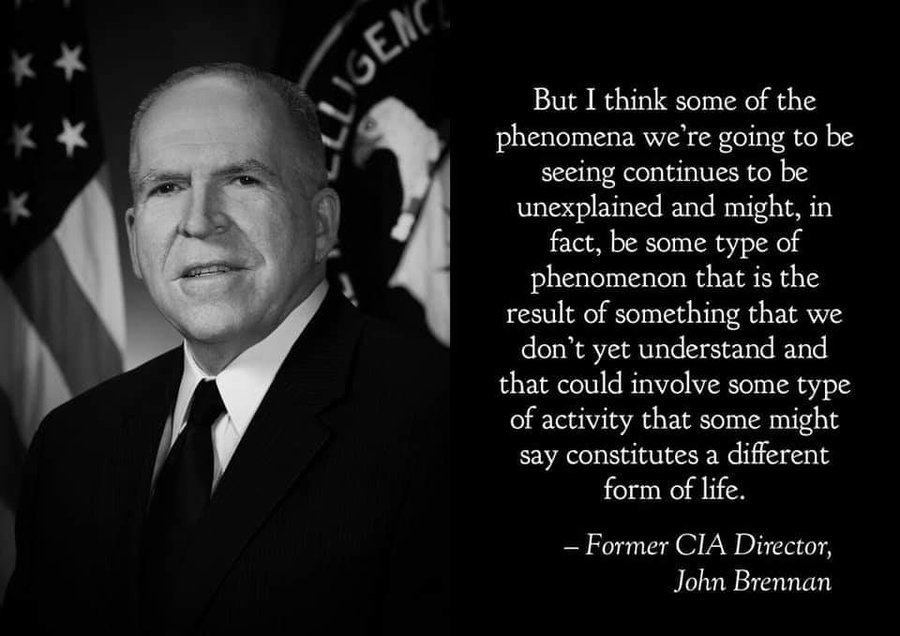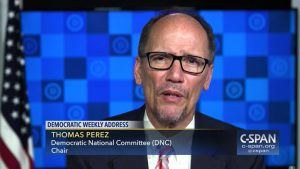
Here at TheCenterLane, I have been following how the mainstream news media have been taking a more serious look at the UFO phenomenon since the February 4, 2016, death of Apollo 14 astronaut, Edgar Mitchell. In my March 28, 2016, piece I pointed out that:
Although many news reports announcing Mitchell’s death noted his interest in the subject of UFOs, the flow of snark was attenuated in light of the somber circumstances. Since that day in February, there has been little – if any – ridicule about Mitchell’s interest in UFOs because the entire subject has actually gained a modicum of respect. In fact, many of the memorial articles about Edgar Mitchell spoke admirably of the astronaut’s quest to expose this truth.
Almost two years later, the December 16, 2017, edition of The New York Times contained an astonishing story about the Defense Department’s Advanced Aerospace Threat Identification Program (AATIP). AATIP was headquartered on the fifth floor of the Pentagon’s C Ring and was managed by Luis Elizondo for the Defense Intelligence Agency. AATIP was tasked with studying UFOs (now referred to as UAPs – for Unidentified Aerial Phenomena). As a result, the subject of UFOs and UAPs has been taken more seriously by politicians and news outlets.
Throughout the months and years after the publication of the December, 2017 New York Times piece, UFO skeptics and debunkers have been preoccupied with “putting out fires” erupting in news outlets which have dared to report the truth about these phenomena. As time has progressed and the truth has been wandering into the daylight, those naysayers have become increasingly overwhelmed.
Lue Elizondo has been making appearances on a wide variety of newscasts, from 60 Minutes on CBS to Tucker Carlson Tonight on Fox News. Elizondo’s appearances on Web podcasts, such as Curt Jaimungal’s Theories of Everything have ignited speculation about the extent of UAP information kept secret by the Pentagon and whether this information might be subject to gradual release according to a secret timetable.
On September 13, 2021, The Hollywood Reporter disclosed that Lue Elizondo had signed a book deal with William Morrow, an imprint of HarperCollins, after a competitive bidding war for the U.S. publishing rights for Elizondo’s memoirs concerning his investigations into the UFO/UAP subject. This upcoming book is expected to bring some new revelations about UAPs (described by The Hollywood Reporter as “shocking details”). Beyond that, Elizondo can be expected to expose the measures taken by those who have attempted to maintain the high degree of secrecy concealing these phenomena. The American public and its elected officials have become increasingly outraged by the suppression of this important information.
On November 24, 2021, Christopher K. Mellon, (former Deputy Assistant Secretary of Defense for Intelligence in the administrations of President George W. Bush and President Bill Clinton) wrote an open letter to Congressional Representative Ruben Gallego, commending him for his support of Senator Kristen Gillibrand’s amendment to the National Defense Authorization Act.
The Pentagon’s initial reaction to this proposed legislation was an attempt to “front run” the effort through the suggested creation of its own Airborne Object Identification and Management Synchronization Group (AOIMSG). According to the Defense Department, the AOIMSG would limit its investigation of UAPs to situations involving incursions into Special Use Airspace (military operations areas and other restricted airspace). Worse yet, oversight of the AOIMSG would be handled by an Executive Council comprised of Defense Department and “Intelligence Community” members, as opposed to Congressional oversight and the resulting transparency that such a course would necessitate. The overwhelming pushback against the Pentagon’s AOIMSG idea served only to secure the passage of what became known as the bipartisan Rubio-Gillibrand amendment.
After the amendment was approved for inclusion in the 2012 National Defense Authorization Act, co-sponsor Senator Marco Rubio issued a press release discussing the establishment of a UAP office within the Defense Department, which would be tasked with preparing “a full spectrum of intelligence, scientific, and technical assessments related to UAPs”, including:
- Collection & Analysis of Data into a Central Repository: The UAP office will supervise the development and execution of intelligence collection and analysis regarding UAPs in order to understand their technical and scientific characteristics. The UAP office will receive relevant data immediately from Intelligence Community agencies.
- Establish a Science Plan: The UAP office will be responsible for implementing a science plan to test scientific theories related to UAP characteristics and performances.
- Build a National Priorities Intelligence Framework: The DNI will be required to consult with the Secretary of Defense to assign a level or priority within the National Intelligence Priorities Framework related to UAPs.
- Evaluate any links between UAPs and foreign governments or non-state actors: The UAP office will be tasked with evaluating threats that UAPs may pose to the United States. Additionally, the office will be responsible for coordinating with federal agencies, including the FAA and NASA, and international allies and partners on UAPs.
- Report to Congress: The UAP office will be required to provide unclassified annual reports to Congress and classified semi-annual briefings on intelligence analysis, reported incidents, health-related effects, the role of foreign governments, and nuclear security.
With the passage of the National Defense Authorization Act and the included Rubio-Gillibrand amendment, advocates for government and military transparency on the UAP subject were popping open champagne bottles and celebrating. Meanwhile, sober minds at the Liberation Times website, which has been advocating for such transparency, took a hard look at the road ahead, as the Pentagon began to undertake a responsible approach to this subject for the first time in its history.




